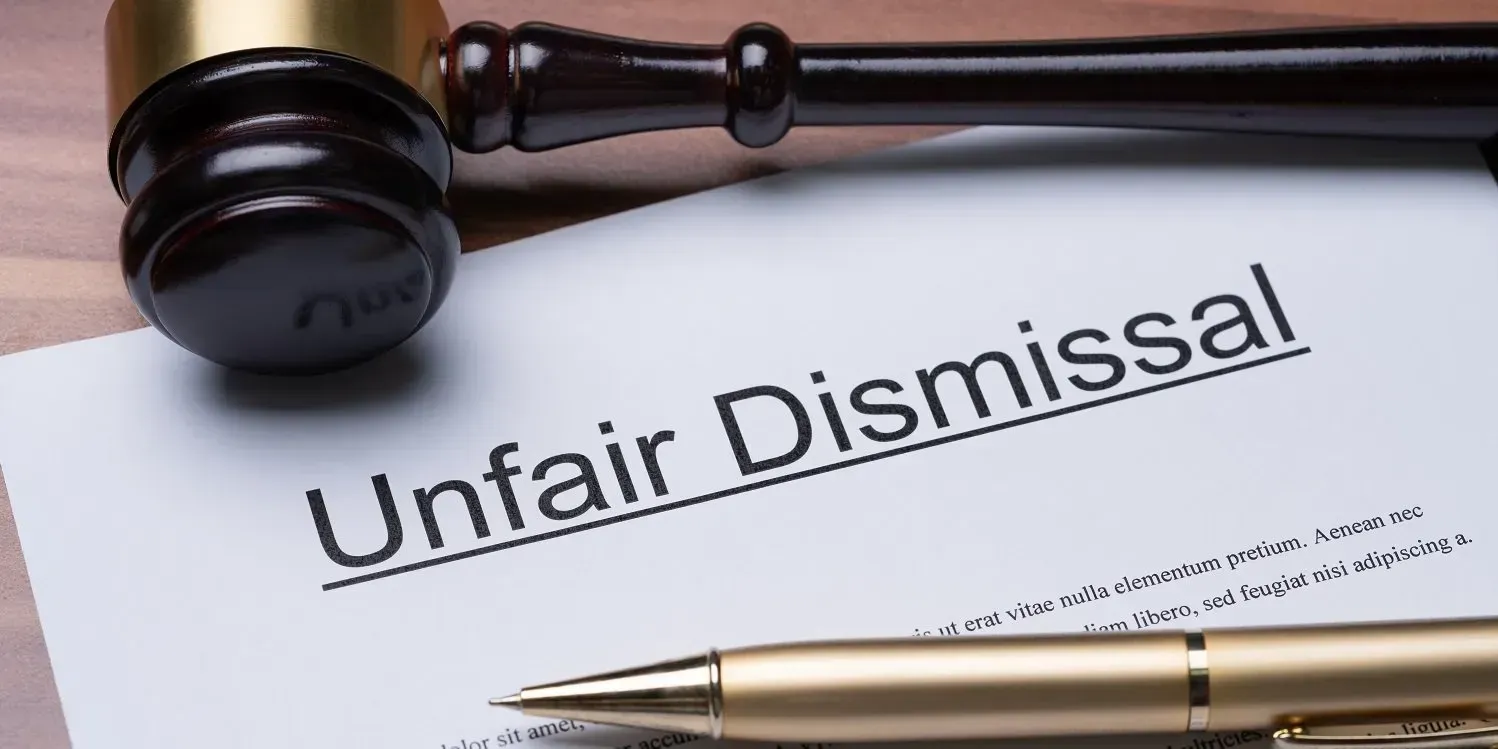Have you been unfairly dismissed?
What you can do if you have been unfairly dismissed?

Unfair dismissals occur when an employee has been unfairly dismissed from their job.
In Australia, an employee can challenge an unfair dismissal by making a statutory claim for an unfair dismissal remedy in the Fair Work Commission or a State Industrial Relations Commission, depending on the employer.
Unfair dismissals in the federal Jurisdiction are governed by the Fair Work Act 2009 (Cth) (FW Act), which protects employees from unfair dismissal where the employee:
a) has been employed for at least 12 months where the employer has less than 15 employees or 6 months where the employee has more than 15 employees; and
b) where one or more of the following applies:
a. the employee earns below the high-income threshold;
b. the employee is covered by a modern award;
c. where an enterprise agreement applies to the employees employment.
Has there been a dismissal?
The FW Act states that an employee is considered to be dismissed where:
- the employee has been terminated from their employment on the employer’s initiative; or
- the employee was forced to resign from their employment because of the conduct or course of conduct of the employer (this is also known as constructive dismissal); or
- the employee was demoted which resulted in a significant reduction in their remuneration; or
- the dismissal is not a case of genuine redundancy.
Casual Employees
In some circumstances an employee may not know if they have been dismissed from their employment. This can occur when an employee is employed on a casual basis.
Casual employees are usually employed on an hourly, daily or weekly basis, without any commitment from the employer as to ongoing employment.
However, in some cases casual employees work regular and systematic shift patterns. If this is the case, a casual employee may be entitled to make an unfair dismissal application where the employer ceases to provide them with future work.
Constructive Dismissal
Constructive dismissal is a term commonly used where an employee feels that their employer has taken adverse steps against them in order to get them to resign from their employment.
However, in order for a resignation to be deemed a constructive dismissal, an employee will need to prove that they had no other option but to resign from their employment.
In Weber v Deakin University[1] Mr Weber resigned from his employment following a period of illness. After a significant period of time, the University ceased trying to obtain further independent medical assessments in respect of Mr Webers ability to return to work.
Mr Weber made an application for an unfair dismissal remedy to the Fair Work Commission stating that he had no other reason but to resign on the basis that the University refused to make reasonable adjustments to allow him to return to work.
Commissioner Roe rejected Mr Webers claim stating “I cannot identify any actions by Deakin that were intended to force Mr Weber to resign or has the probable result that he would resign, or which left him with no real choice but to resign.”
In circumstances where an employee feels they have no other option but to resign, CJM Lawyers strongly recommends seeking legal advice prior to resigning.
Was the dismissal unfair?
Where an employee can satisfy the Commission that they have been dismissed and are protected by the unfair dismissal laws, the Fair Work Commission will make a determination as to whether the dismissal was unfair.
In doing so the Fair Work Commission will consider the following:
1. if the dismissal was harsh, unjust or unreasonable; and
2. if the dismissal was inconsistent with the Small Business Fair Dismissal Code.
In determining if the dismissal was harsh unjust or unreasonable, the Fair Work Commission will consider the following:
3. if the employer had a valid reason for the dismissal;
4. if the employee was afforded procedural fairness and/or if the evidence before the employer supported a conclusion that the employee ought to be dismissed;
5. if the punishment fits the crime or was disproportionate to the conduct alleged; and
6. if the dismissal was harsh, taking into account the employee’s length of service, performance and conduct history and personal circumstances.
What remedies are available to me if the Fair Work Commission determines my dismissal was unfair?
The primary remedy for an unfair dismissal is reinstatement, however, reinstatement is rarely awarded. This is on the basis that once a dismissal has occurred there is usually a breakdown in the employment relationship. The Fair Work Commission is reluctant to reinstate the employment relationship where this has occurred.
The more common remedy is an order of payment of compensation. The maximum compensation payable is 26 weeks’ wages.
Any award of compensation by the Fair Work Commission is determined by taking into account a number of factors. These include:
- the loss of wages to the employee as a result of the dismissal;
- the length of the employee’s services and the time in which it may take the employee to find new employment (if they haven’t already);
- the employee’s conduct leading up to the dismissal, including whether the employee engaged in misconduct;
- the likely length of service the employee would have had with the employer had they not been unfairly dismissed; and
- the steps taken by the employee to mitigate their loss of income following the dismissal.
In circumstances where the employee finds new employment following the dismissal, the employee’s loss will be limited to the number of weeks between the dismissal and the commencement of the new position.
Where to from here?
All unfair dismissal complaints have a 21-day time limit, so if you are concerned that you have been unfairly dismissed from your employment, you should seek urgent advice from a lawyer experienced in employment law.
You can contact one of our employment lawyers on 1300 245 299.
Contact Us Now!
For comprehensive legal services,
book now for your free initial consultation.
Contact Us
We will get back to you as soon as possible.
Please try again later.
Contact Us Now!
For comprehensive legal services,
book now for your free initial consultation.
Contact Us
We will get back to you as soon as possible.
Please try again later.
Our Latest Story


Our Latest Story


Our Latest Story


Our Client Say



Our Client Say



Our Client Say






























